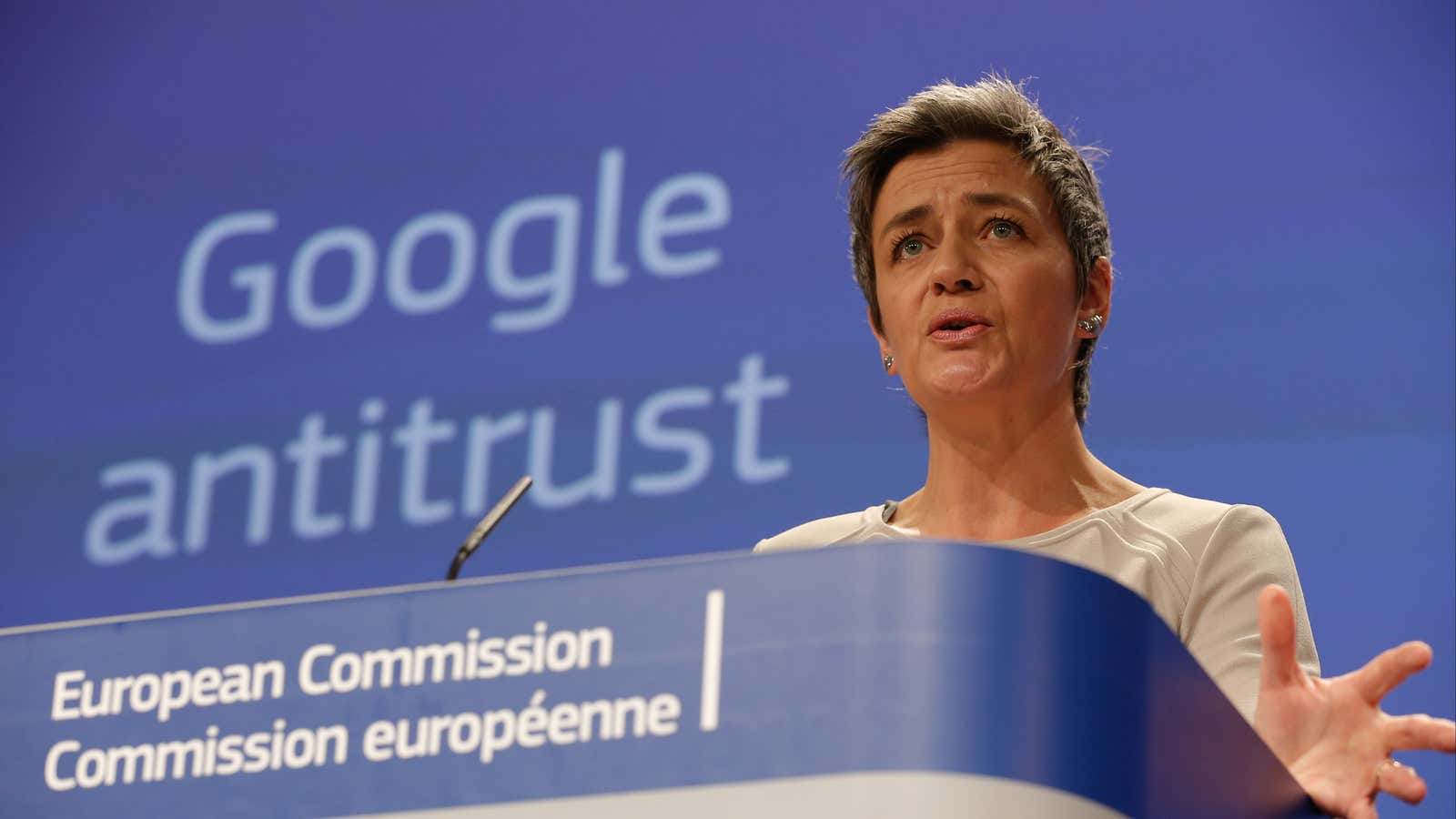The European Commission is preparing to formally charge Google for anti-competitive behavior around Android, its smartphone operating system, according to a Bloomberg News story yesterday (Mar. 9).
The strongest indication of such charges in the works is the fact that the commission has asked Google’s competitors to remove confidential information from documents submitted for the investigation. These documents would be shown to Google after the commission sends the tech giant a “statement of objections,” or a list of charges showing possible legal violations. Bloomberg News cited three unnamed sources with knowledge of the investigation. The last time the commission asked Google’s competitors to remove sensitive information from their submissions, the firm was slapped with a statement of objections a month later.
Google told Quartz it had no comment on the story. The European Commission’s competition authority also declined to comment.
The commission opened an anti-trust probe into Android in April 2015. This followed a complaint filed by a trade group representing Expedia, Microsoft, Nokia, and 14 other technology companies in April 2013. The group, called FairSearch, alleged that Google was using Android’s dominant position in mobile operating systems as a “Trojan Horse” to achieve unfair advantages, including to “deceive partners, monopolize the mobile marketplace, and control consumer data,” the group’s lawyer, Thomas Vinje, said at the time.
Google now has a string of EU regulatory problems on its hands. It was charged with abuse of a dominant position in its comparison-shopping service in April 2015. That charge has not yet been resolved. There are rumblings that the commission is now looking for anti-competitive practices in Google’s advertising business. Then there’s the chance of an EU investigation into its much criticized tax arrangements in the UK.
All these cases fall under the remit of Margrethe Vestager, the competition commissioner who is barely two years into her posting. She has shown a willingness to take on global companies and win. Starbucks, Fiat, and Anheuser Busch InBev have been ordered to cough up millions in unpaid taxes in the Netherlands, Luxembourg and Belgium. And she’s currently probing Apple and Amazon’s tax deals.
Google chief executive Sundar Pichai met Vestager for the first time in Brussels in February of this year, but the hour-long meeting doesn’t appear to have assuaged EU doubts about Google’s business.
